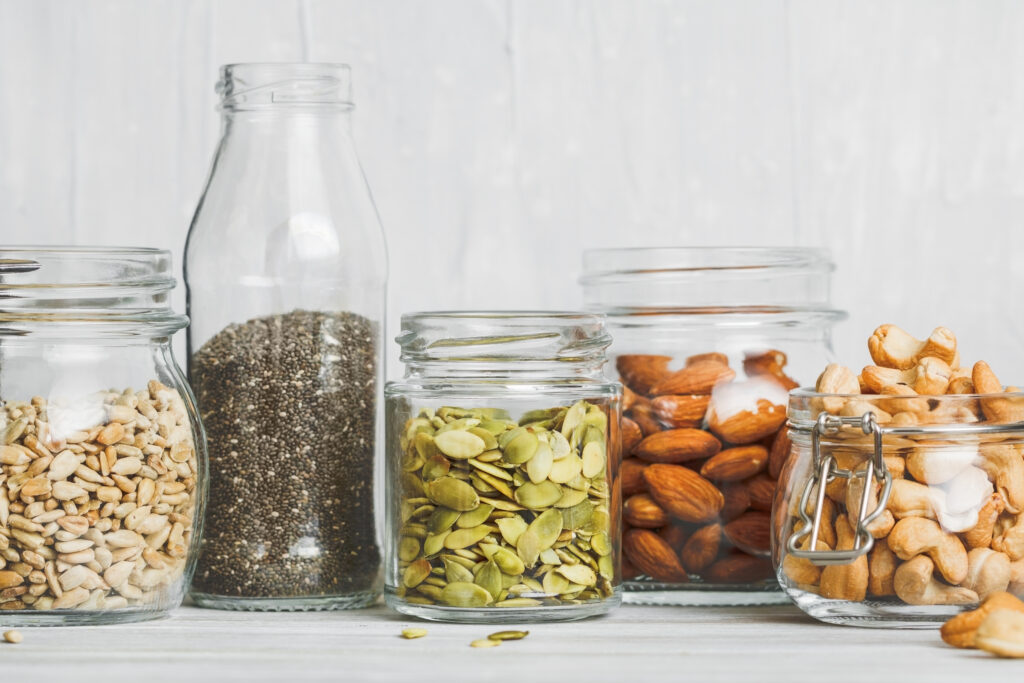
While scientists don’t know what causes ulcerative colitis, they do understand that direct treatment of symptoms such as bloody diarrhea and cramps can improve quality of life. Treatment typically includes drugs that suppress inflammation and analgesics such as acetaminophen.
People with UC often find that certain foods trigger or worsen their symptoms. But a balanced diet that includes lean proteins such as chicken, fish, turkey, tofu, and eggs, fruits, vegetables, and dairy can help keep symptoms at bay.
1. Applesauce
Applesauce, in its simplest form, is just cooked apples. It’s a great way to get the same nutrients as fresh whole apples without all that fiber. It’s also easy to use in recipes and even eat as a snack.
You can enjoy a bowl of homemade applesauce with a spoon or add it to many dishes, such as savory foods like pork chops and muffins. It also goes well with a cup of hot or cold vanilla ice cream.
Protein-rich foods are important for a healthy diet, but they can trigger ulcerative colitis symptoms in some people. Choose lean proteins, such as chicken breast, fish, turkey, tofu, or eggs.
2. Garlic
Garlic has anti-inflammatory properties and is known to reduce symptoms of UC such as abdominal pain, diarrhea, and rectal bleeding. It can also help regulate the immune system, which is often overactive in people with UC.
Garlic is also an antioxidant and can protect the liver from oxidative damage. This is important because oxidative stress and inflammation are both common in UC flare-ups.
Keep in mind that introducing garlic too quickly can worsen gastrointestinal symptoms, so it’s best to start with small amounts and work your way up. Garlic supplements are also available, but be sure to consult with your doctor to ensure that they are safe for you.
3. Ginger
Ginger can help ease symptoms like abdominal pain, bloating, and diarrhea by inhibiting the production of pro-inflammatory molecules. Additionally, it can enhance nutrient absorption and promote the growth of healthy bacteria in the colon.
This powerful spice also has antioxidant properties that can reduce oxidative stress, another factor in ulcerative colitis. However, it is important to note that ginger does not cure UC and should be used as part of a comprehensive treatment plan.
Before making any significant dietary changes, it is always a good idea to consult with a healthcare professional. They can provide personalized advice based on your health condition and medication.
4. Nuts
Nuts are a nutrient dense food and a great source of healthy fats. They also provide protein, fiber, minerals, tocopherols, phytosterols, and phenolic compounds.
Eggs provide a source of protein and are well tolerated by people with ulcerative colitis. They are also a great source of fat-soluble vitamins and minerals. Try making boiled eggs, scrambled eggs or adding them to a smoothie.
Limit alcohol and caffeinated beverages because they can stimulate the intestine, trigger diarrhea and increase gas. Carbonated beverages are also difficult to digest for people with ulcerative colitis and can cause gas, bloating, and abdominal pain.
5. Seeds
Many people are attracted to superfoods because they are touted as having special health-related benefits. However, the term is mostly a marketing term and all foods have their place in a healthy diet.
For example, bananas are high in vitamins B6 and C, manganese and fiber. They are also a good source of carbs to fuel your body during a flare. Other fruits and vegetables often included in superfood lists include berries, which are rich in antioxidants; pomegranates, which contain the anti-inflammatory compound ellagic acid; and dark leafy greens, including Swiss chard, spinach, collards, mustard greens and cabbages (cooked). Mushrooms also make the list because they are high in potassium, iron and vitamin D.
6. Fatty Meats
Fats are harder for the body to digest than carbohydrates, causing discomfort. During a flare, high-fat foods can trigger diarrhea and abdominal cramping. Low-fiber fruits are generally easier to digest and may reduce symptom flare-ups. Avoid chocolate, coffee, and sugary drinks as these can irritate the digestive tract and cause diarrhea. People with ulcerative colitis usually tolerate cooked fruits and vegetables that are lower in fiber and residue, such as bananas, cantaloupe, squash, and cooked carrots. Eggs, chicken, tofu and firm nut butters are also well-tolerated proteins.
Keeping a food journal helps identify potential dietary triggers.
7. Prunes
Prunes are a great food to add to your diet during a flare because they can help reduce constipation. They also have anthocyanins which decrease the risk of colon cancer.
High-fiber foods can irritate your colon lining, so limit them during a flare up. This includes whole grains, nuts, legumes, and vegetables with the skins on them.
Avoid eating fried, fatty, or spicy foods as they may trigger a flare up. Also, be sure to avoid alcohol as it can cause bloating, gas, and abdominal cramping. Drinking low-fat milk or consuming dairy products that are easily digested such as kefir, yogurt, and kombucha can provide you with protein and probiotics.





